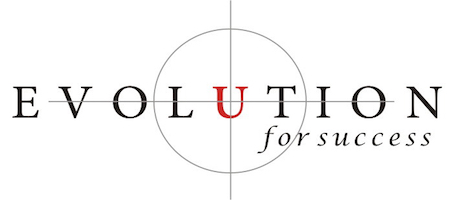8 Reasons Not to Hire An Executive Coach
 If you’re thinking about hiring an Executive Coach, ask yourself a few questions before you pick up that phone. Coaching can help you take your game to the next level both professionally and personally, but sometimes it doesn’t work out. Here are ten very common reasons “not” to hire an Executive Coach.
If you’re thinking about hiring an Executive Coach, ask yourself a few questions before you pick up that phone. Coaching can help you take your game to the next level both professionally and personally, but sometimes it doesn’t work out. Here are ten very common reasons “not” to hire an Executive Coach.
1- You like your “label”
Through life, we are influenced by how others “label” us and our behaviors. But we also label ourselves and our behavior. I recently applied to join a local Raleigh Meetup group for shy, anxious people and was declined. Why? The individual in charge of the group did not want someone to come in and “influence the group” to move outside of the labels they had created for themselves. If you’re not interested in seeing past your limitation and want to stay in the uncomfortable labels you have adopted for yourself; being poor, not worthy, stuck in a rut, shy, anxious, etc. then a coach is not for you.
2- You’re under the impression a coach is a therapist
Generally speaking, therapists are more “process” oriented. In therapy, you talk at length about your problem, explore your feelings, and why you might be acting the way you do. Coaching, by comparison is much more results oriented. The idea is to get a clear understanding the current situation, define your end goal, and in the shortest amount of time bridge the gap to get concrete and measurable results. A great coach does care how you feel, but doesn’t really care “why” the situation happened. The goal is to help you create new beliefs, define new strategies, take immediate action and produce results.
3- What you really need is a consultant
A consultant’s job is to solve specific problems within your company. By comparison, a coach’s job is to increase your own ability to solve your problems. If you hire an executive coach under the assumption that he or she will solve your problem, you can only be disappointed.
4- Your problem is not behavioral
The whole purpose of executive coaching is to create behavioral change by addressing your beliefs and thought processes. If your issues are based on a lack of technical knowledge for instance, hiring an executive coach, no matter how phenomenal, will not create the results you’re after.
5- You’re not willing to change
The mere act of hiring an executive coach will not solve your problem. You need to be committed to making change; just as reading a book about building a successful business will not automatically result in having a successful business. You have to have to want to do things differently to make it happen.
6- Your expectations are unrealistic, you wait to celebrate BIG wins
Many people overestimate what they can do in a day and underestimate what they can accomplish in a focused week. They also overestimate what they can do in a year and underestimate what they can do in ten. If you aren’t open to a simple “pat on the back, job well done, or way to go,” you may be disappointed. You will never get to the “BIG” if you don’t first celebrate the “small.”
7- You don’t actually believe the coaching process works
You have heard the saying, “If you believe something is so, then it is. If you believe something is not, then it isn’t.” One of the hardest patterns of thinking to get over is that achieving a goal is less significant if you have to get help to achieve it. Achieving something in life is only truly significant when you have someone to share it with at the end, someone who knows all of the struggles and challenges you overcame along the way. Imagine crossing a marathon finish line in an empty desolate parking lot. Imagine an actor accepting an Oscar with a speech of, “it is all about me, I’m so great, I did it all by myself.” Success leaves clues and people love to share them with people who are driven and smart enough to ask for help!
8- You don’t want to take action
If you are frustrated and want to get to somewhere you are not, showing up on a coaching session every week just to talk about your problems will surely get you nowhere fast! In between coaching sessions, an individual has to be willing to take action. It may be BIG actions or small actions but the one action that will guarantee failure is no action. The more action you can engage in, the greater your results!
Coaching is not for everyone and especially not for the faint of heart. An Executive Coach will push you outside your comfort zone, past your limiting beliefs and emotions and help you to get moving again. However, if you enter into a coaching relationship with your eyes wide open, it will be a fruitful one.

